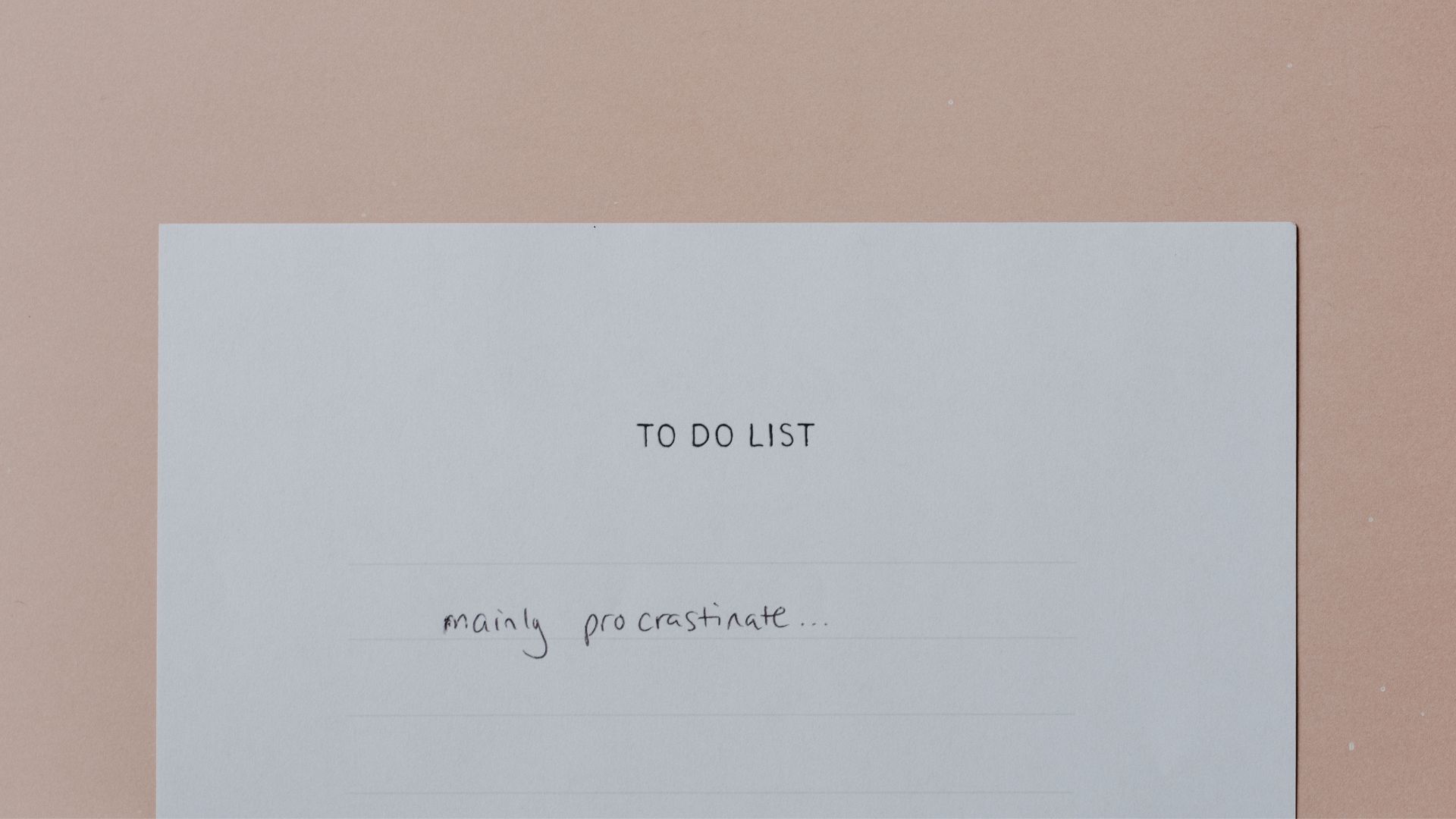The procrastination phenomenon. We are all guilty of pushing responsibilities aside at one point or another. But did you know an estimated 50% of students chronically procrastinate, as do about 15-25% of the wider adult population?
The act of delaying or postponing something is not a habit to make light of. Whilst it can include putting off chores, a difficult task or assignment, or important phone calls, the compounding effect can have significant negative impacts on your mental health and ability to adapt to changing workplace requirements.
Fortunately, decades of research have delved into the causes of procrastination and strategies to reduce the problem to effectively tackle life head-on.
The Psychology Behind Procrastination
Ultimately, procrastination is a mismanagement of our emotions, projected externally. When we voluntarily delay an unpleasant, boring, frustrating, stressful — but nonetheless, important — task, knowing the consequences will come around to haunt us, we receive an immediate sense of relief.
At least for a short while, anyway.
People who suffer from chronic procrastination typically experience less job security and options for career progression, therefore impacting their health, well-being and professional career. You may suffer from severe stress, anxiety and shame and have physical symptoms like insomnia, headaches and heart-related problems.
So why do we do it? Continuous worry over inadequate performance or a fear of expectations is known to cause deliberate, self-regulated delays in student work. Or, you may have heard of ‘active procrastination‘, which is when people work with greater efficiency under pressure. Whilst this may be the case, active procrastination is still rooted in the choice of inevitably harmful task avoidance.

11 Strategies to Overcome Procrastination
There are ways to break the procrastination cycle, and it’s not harsh judgement. You are not lazy for procrastinating; improving your organisation, and it’s important to recognise that time management skills require baby steps.
1. Identify what’s urgent vs. important
The longer your to-do list is, the more overwhelming it can be to know where to start. The Eisenhower Matrix (or, the Urgent-Important Matrix) can help you with planning and prioritising tasks by categorising them by importance and their deadlines.
From there, you can easily decide which tasks require immediate completion, which can be delegated and which can be discarded.
2. Set realistic goals and achievable deadlines
Having a clearly outlined plan will provide much more direction and motivation to tick items off your growing to-do list. SMART goals (Specific, Measurable, Achievable, Realistic and Timely) are a great way to track your progress and be satisfied that you are productive. So, the next time you sit down to “get all your research done”, instead think “I’m going to read 10 articles for my essay today”.
3. Consider The Pomodoro Technique
The Pomodoro Technique is recognised worldwide as a beneficial way to release stress and promote sustained concentration. Take a 5-minute break after 25 minutes of focused work to rest and recover. Every 4 sessions, or Pomodoros, have a longer, 15-30 minute break.
Use the longer break to eat a small meal, relax, and continue throughout the workday, particularly when working from home where distractions are rampant.
4. Manage your energy output
You are not a machine; your brain needs a rest. Prioritise your energy management by eating properly and going outside to get some fresh air. Take a short walk, listen to some music, and give your eyes a pause from staring at a screen. Having micro-breaks at regular intervals will re-energise you to get the next task done in between, as the passage of time becomes more prevalent.
After all, the last thing you need is burnout triggering more reasons for procrastination.
5. Creating a motivating environment
As social beings, humans thrive off each other’s energy. If you’re a leader in the workplace, everyone will be looking to your example for motivation, even if you’ve woken up on the wrong side of the bed. Stick to your routines, live by your values and ask your team members for a hand and encouragement to carry productive momentum throughout the day.

6. Accountability measures and social support
Organising study buddies can help keep everyone accountable as you work together on separate or group tasks and celebrate each other’s productivity.
7. Creating a structured schedule
Not all projects were created equally. Different tasks require a schedule that is tailored to their objectives, be it agile, iterative, a process or workflow. Understanding what category your project falls under will better equip you with its management approach and yield the best outcome.
For more complicated tasks, consider using a Gantt chart to keep track of where you should be during each phase of the project.
8. Breaking tasks into manageable steps
Maybe a Gantt chart is too daunting for you. However, the basic principle of splitting a large responsibility into smaller actions is a great tip to maintain determination and commitment to getting everything done. Having a clear direction and a way to track progress and resources will shift your behaviour towards success.
9. Utilising time management techniques
Time management is not just about planning, it also involves avoiding distractions and maintaining self-control to stay on task. Luckily, we live in a wonderful age where technology can help us keep on task and practice self-discipline. Microsoft Outlook, OneNote and Project all have inbuilt features that notify you of things you need to focus on throughout the day.
If you don’t use the Microsoft Office Suite, consider Evernote or Notion for a similar experience.
10. Overcoming perfectionism
Perfectionism holds a lot of power over your work routine and decision-making. While perfectionism can motivate you to perform consistently and deliver quality work, it can bring about unnecessary anxiety and slow you down. Such diligence requires a lot of effort and is very time-consuming, so if you tend to overthink your work, adjust your standards to let go of the guilt.
Developing a positive mindset will also help reduce the pressure of failure. Reinforce your success, goal achievement and good ideas with a reward or treat to boost your self-esteem.
11. Minimising distractions in your environment
Awareness of time wasters in your workplace is the first step in reinstating effectiveness and productivity throughout the day. Phone calls, emails, instant messages, unnecessary meetings and multitasking are only a number of situations that excuse you from your work. Turn off notifications, declutter your workspace and set aside specific times for breaks and lunch will help keep your work environment distraction-free.

Tools and Resources to Help You Stop Procrastinating
Overcoming procrastination is a journey. Practising how to work smart requires diligent self-improvement to change your behaviour.
There are several notable books and articles from key researchers and productivity experts in the field that can assist with more practical tips for establishing an efficient workflow, measuring productivity, improving your focus, and managing your time.
Feeling bold? Take the first step today by booking a time management course! Priority Management is your trusted leader in workspace solutions and offers individual and group training tailored to your needs. From goal setting and achievement, prioritising tasks, reducing distractions, and other time-saving strategies like inbox zero. We cover it all. Contact the team today to find out more.
